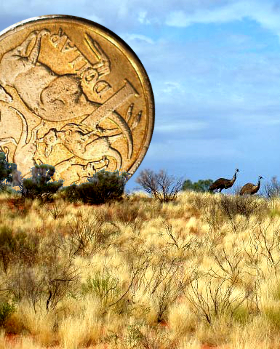Resource exports set to drop
 Australia's resources export market is expected to face a significant downturn, according to the latest report from the Department of Industry, Science and Resources.
Australia's resources export market is expected to face a significant downturn, according to the latest report from the Department of Industry, Science and Resources.
The June Resource and Energy Quarterly Report reveals that the value of resource shipments is likely to have reached its peak, with earnings predicted to slide from $460 billion in the past year to $390 billion in 2023–24.
This decline can be attributed to slower global economic growth and reduced constraints on supply chains.
The drop in earnings will be particularly evident in fossil fuel exports, with thermal coal sales expected to decrease from $64 billion in 2022–23 to $30 billion by 2024–25.
The global price of gas, which soared in 2022, will also have a major impact on Australia's liquefied natural gas (LNG) production.
LNG sales are forecasted to fall from a record $92 billion last year to $68 billion in 2023–24 and then to $60 billion the following year.
Iron ore, Australia's most valuable export commodity, will also experience a decline due to China's economic recovery from COVID-19 lockdowns stalling. Iron ore exports are projected to be worth $93 billion in 2024–25, compared to $123 billion in the previous financial year and an estimated $110 billion this year.
Metallurgical coal, used in steel production, will decrease in value from $60 billion last year to $42 billion in two years' time.
Despite these challenges, there is a silver lining for Australia's exporters in the critical minerals industry.
The report highlights soaring demand for green technologies like renewable energy and electric vehicles, which is driving sales to record highs.
The combined value of minerals required for the energy transition reached $46 billion in the most recent financial year and is expected to remain above $40 billion annually.
Federal Resources Minister Madeleine King emphasised the importance of critical minerals, stating that Australia is well positioned to meet the long-term demand for base metals and critical minerals such as lithium.
These minerals are vital components of clean-energy technologies such as batteries, solar panels, and wind turbines.
The Australian government aims to support the development of the critical minerals sector to establish the country as a clean-energy superpower and fulfil emissions reduction commitments.
King recently unveiled Australia's new Critical Minerals Strategy, which aims to capitalise on the country's mineral resources and foster the growth of downstream industries.
The strategy acknowledges the challenges ahead but says there is potential for job creation and capitalising on the unique opportunity to support both Australia's economy and global emissions reduction efforts.








 Print
Print